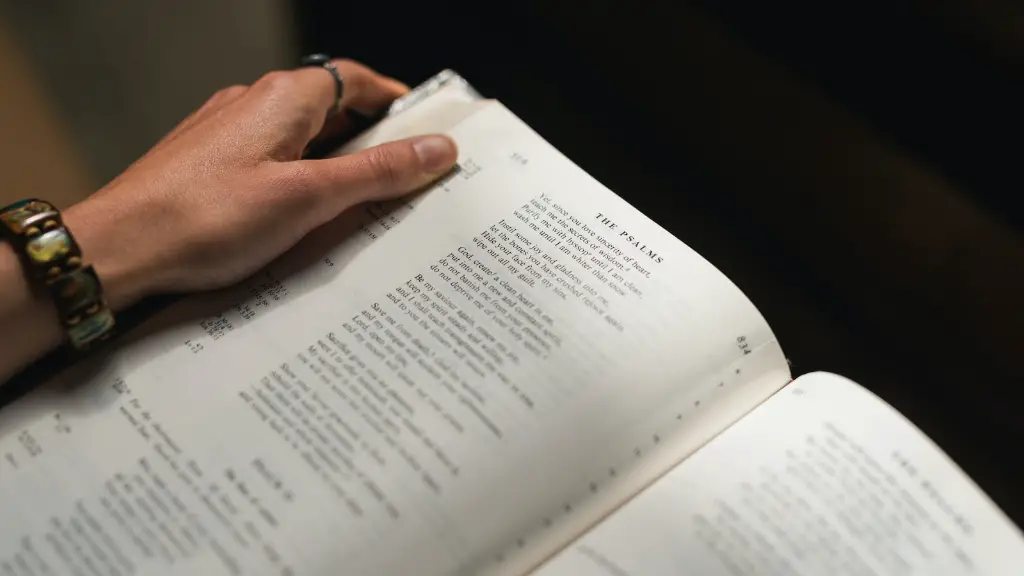Early Years and Influences
Born in Joplin, Missouri in 1902, Langston Hughes was a renowned American poet, novelist, and playwright. His work often celebrated the culture, experiences, and struggles of African-Americans and explored themes of racism and the struggles of the working-class. He was inspired by jazz and the blues, which he heard while working in cafes and observing the lives of African-Americans in the early 20th century. As a young man, he traveled around the world, visiting Haiti, Africa, and different parts of Europe. These experiences were integral to his development as a poet.
He began writing poetry when he was a teenager. His first published poem, “The Negro Speaks of Rivers”, appeared in a 1921 issue of The Crisis magazine. This poem was highly praised by W.E.B. DuBois and was published in The Weary Blues, Hughes’ first volume of poetry. That same year, he became one of the earliest African American poets to be included in a major American literary anthology, The New Negro.
Poetic Style and Content
Hughes’ poetry was known for its lyrical, rhythmic quality and his use of jazz, blues and folk music influences. He was deeply concerned with the struggles, joys and everyday life of African Americans. His lyrical style was seen as one of the origins of the Beat Generation poets, who were inspired by his “jazz poetry”. Hughes was also known as one of the prominent Harlem Renaissance writers.
His work explored aspects of racism, segregation, and inequality, and he often wrote with a sense of ironic detachment. Hughes was interested in the black vernacular and its influence on poetry, and he believed in using more colloquial language in his works. He frequently wrote about the importance of preserving African American cultural and literary traditions, expressing a strong sense of pride and solidarity.
His poetry often focused on themes of identity, individual experience and spirituality. He wrote about struggles and discrimination, but also celebrated African Americans’ ability to find joy in music, creativity and cultural expression.
Notable Works
Hughes was known for his collections of poetry such as The Weary Blues and Fine Clothes to the Jew, which featured more traditional and formal verse. Later collections, such as Montage of a Dream Deferred and The Panther & the Lash, incorporated jazz influences and explored the themes of racial identity and discrimination. Other important works include his novels Not Without Laughter and The Ways of White Folks, his autobiography The Big Sea, and the play Mule Bone.
One of his most famous poems is called “Dream Deferred”, often referred to as the “Harlem” poem. The poem explores what might happen if a person’s hopes, dreams, and wishes are put off indefinitely. The poem has been widely interpreted and has become an important part of American cultural canon.
Legacy
Hughes was one of the most important and influential poets of the 20th century. He was the first African-American to support himself purely through writing and was responsible for redefining literature and poetry written by African Americans. His influence on American poets, especially those of the Beat Generation, was widely seen.
He is widely celebrated and has been honored with multiple awards and recognitions, including the National Book Award, the American Academy of Arts and Letters Award, and the NAACP Spingarn Medal. He has been commemorated with a bust in the Poet’s Corner of Westminster Abbey and his face appears on a United States postage stamp.
Hughes’ legacy still lives on in his writing, which continues to be celebrated and widely read. It is credited with inspiring generations of African American artists and writers.
Reputation and Impact
Hughes is credited with changing the landscape of African American literature and being one of the first writers to bring African American literature into mainstream culture. He championed the tradition of vernacular writing and was dedicated to capturing the vibrancy and spirit of African American life in his work. His work often dealt with complex social issues, reflecting the state of African American life at the time. He was a vocal activist, publishing pieces such as “The Negro Artist and the Racial Mountain” in The Nation magazine in 1926.
His work is widely read and studied in schools across the United States and internationally. He is often seen as a key figure in the Harlem Renaissance, bridging the gap between traditional, classical literature and literature created by African-Americans. His legacy is still relevant today and his impact on literature is undeniable.
Influence on Other Poets
Hughes has been called the “Father of Jazz Poetry” and is highly revered by contemporary writers and poets. He was influential in the development of the Beat Generation, inspiring some of its members to incorporate jazz and blues into their work. He is admired by many contemporary poets, including Amiri Baraka, T.S. Eliot, and Allen Ginsberg. His influence is still felt today, inspiring future generations of African American poets.
His work was not just limited to African American literature but was also influential in wider American and international literature. He was one of the most widely published African American writers in the first half of the 20th century and was an important role model for aspiring black writers. His work shaped and influenced the work of generations of writers to come.
Conclusion
Langston Hughes was a poet, novelist, and playwright whose influential work made him one of the most important cultural figures of the 20th century. His work captured the energy and spirit of African American life, and explored complex social issues. He championed the tradition of vernacular writing, influencing generations of writers, poets, and artists. Today, his work is still widely read, appreciated and celebrated as one of the most important works in American literature.



